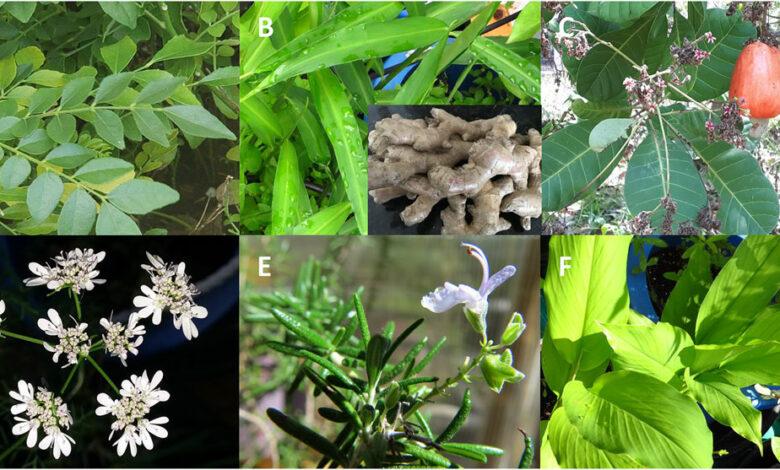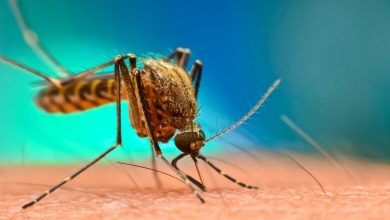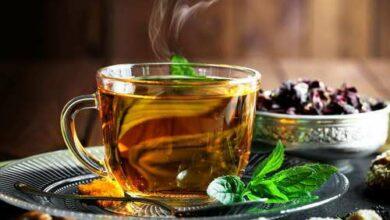
Top 15 Antimicrobial Herbs in Nigeria
Nigeria is blessed by nature with an abundance of plants including herbs that have powerful antimicrobial properties. These herbs have traditionally been utilized for centuries as a means to treat infections and promote good health. In particular, herbs like garlic, neem, turmeric, African basil, thyme, moringa, and pawpaw have a long history of use in traditional Nigerian medicine to effectively combat bacteria, viruses, fungi, and parasites. Furthermore, many of these antimicrobial herbs are commonly incorporated into Nigerian cuisine.
The Top 15 Antimicrobial Herbs in Nigeria
The top 15 antimicrobial herbs in Nigeria are:
👉 Relocate to Canada Today!
Live, Study and Work in Canada. No Payment is Required! Hurry Now click here to Apply >> Immigrate to Canada1. Garlic (Allium sativum)
Garlic contains potent antimicrobial compounds like allicin, ajoene, and thiosulfinates. These sulfur-containing compounds provide garlic with its pungent smell and give it antiviral, antibacterial, and antifungal effects. Studies show garlic effectively inhibits common pathogens like Staphylococcus aureus, Salmonella, E. coli, and Candida albicans. People widely use garlic in Nigerian cuisine and herbal medicine.InformationGuideNigeria
Read Also: Top 15 Immune-Boosting Herbs
2. Ginger (Zingiber officinale)
Ginger contains bioactive substances like gingerols, shogaols, zingerone, and other volatile oils that provide antimicrobial effects. Research demonstrates ginger’s effectiveness against bacterial and fungal infections, particularly drug-resistant strains. People commonly use ginger as a spice and herbal remedies in Nigeria.
3. Neem (Azadirachta indica)
The neem is an evergreen tree native to Nigeria. All parts of the neem tree have antimicrobial activity. The leaves, bark, and seeds contain compounds like azadirachtin, nimbolide, gedunin, and nimbidol which are strongly antibacterial, antiviral, antifungal, and antiparasitic. People use neem extracts to treat skin and oral infections.
4. African basil (Ocimum gratissimum)
African basil, also known as scented basil, contains eugenol and other volatile oils that inhibit bacterial and fungal growth. People have traditionally used it for respiratory and gastrointestinal infections. African basil exhibits strong activity against E. coli, S. aureus, Klebsiella, and Aspergillus species.
Read Also: Top 15 Healing Herbs from Nigeria
5. Lemongrass (Cymbopogon citratus)
Lemongrass contains citral, geranial, neral, and other essential oils that provide impressive antibacterial and antifungal properties. Research indicates lemongrass oil is highly effective against drug-resistant pathogens like MRSA and Candida species. People commonly consume lemongrass as a tea and use it as an antimicrobial rinse in Nigeria.Top 15 Antimicrobial Herbs in Nigeria
6. Oregano (Origanum vulgare)
Oregano has strong antimicrobial activity attributed to thymol and carvacrol, two phenolic compounds in its essential oil. It exhibits antibacterial effects against foodborne pathogens like Listeria, Salmonella, and E. coli. Oregano oil also has antifungal and antiviral properties. People use oregano for flavoring foods and herbal preparations in Nigeria.15 Best Stoning Machine in Nigeria
👉 Relocate to Canada Today!
Live, Study and Work in Canada. No Payment is Required! Hurry Now click here to Apply >> Immigrate to Canada7. Turmeric (Curcuma longa)
Turmeric contains the powerful antimicrobial agent curcumin, which provides antibacterial, antiviral, antifungal, and anti-parasitic effects. It effectively inhibits S. aureus, Bacillus cereus, E. coli, and many other microbes. People also use it to treat fungal skin infections. However, turmeric is very common in Nigerian cuisine.
8. Thyme (Thymus vulgaris)
The essential oil of thyme contains thymol and carvacrol which have strong antimicrobial properties. Thyme exhibits antibacterial activity against both Gram-positive and Gram-negative bacteria. It also has antifungal effects against yeasts like Candida. People use thyme as an herbal tea and a culinary herb in Nigeria.
Read Also: Top 15 Fresh Herbs with Surprising Health Benefits in Nigeria
9. Guinea pepper (Xylopia aethiopica)
Also called grains of selim or uda, this Nigerian spice contains limonene which gives it antibacterial and antifungal properties. People traditionally use guinea pepper to treat coughs, bronchitis, dysentery, and candidiasis. They also use it as a flavoring agent in soups and stews.15 Best Crops to Grow in Nigeria
10. Bitter leaf (Vernonia amygdalina)
Bitter leaf contains several antimicrobial flavonoids and sesquiterpene lactones. Leaf extracts have shown antibacterial activity against E. coli, S. aureus, Pseudomonas aeruginosa, and Klebsiella pneumoniae. People commonly consume bitter leaves in Nigerian cultures.105 Good Morning My Love Messages
11. African marigold (Aframomum melegueta)
The seeds of the African marigold, also known as grains of paradise, contain gingerol-related compounds that exhibit antibacterial and antifungal properties. African marigold is used in Nigerian folk medicine to treat gastrointestinal infections and candidiasis.200 Romantic Message for Her
Read Also: Top 15 Medicinal Properties of Herbs in Nigeria
12. Bush mint (Hyptis suaveolens)
Traditionally used for respiratory and skin infections, bush mint contains potent antimicrobial essential oils like geranial, neral, and myrcene. It demonstrates antibacterial activity against common foodborne pathogens and even drug-resistant strains.
13. Moringa (Moringa oleifera)
Furthermore, moringa is an extremely nutritious plant containing benzyl isothiocyanate and other antimicrobial compounds. Additionally, the leaves, bark, roots, seeds, and flowers have antibacterial, antiviral, antifungal, and antiparasitic effects. In particular, moringa extracts can inhibit S. aureus, E. coli, Candida, and Leishmania species. Overall, moringa contains a diverse range of antimicrobial agents derived from all parts of the plant, making it a versatile and effective natural remedy.NYSC Portal
14. African eggplant (Solanum macrocarpon)
African eggplant contains the antimicrobial glycoalkaloids solasonine and solamargine. Extracts of the leaf, stem, and fruit exhibit antibacterial and antifungal properties against common pathogens. African eggplant is a common vegetable in Nigeria.
Read Also: Top 15 Holistic Healing Secrets in Nigeria
15. Pawpaw (Carica papaya)
The pawpaw tree bears papaya fruit that contains papain, an enzyme with antibacterial and antifungal properties. The bark, leaves, roots, and seeds also contain antimicrobial alkaloids like carpaine and pseudocarpaine. Pawpaw is used to treat wounds and gastroenteritis in Nigeria.JAMB Portal
Conclusion
Nigeria has an abundance of plants containing antimicrobial compounds that can effectively inhibit the growth of bacteria, viruses, fungi, and parasites. Herbs like garlic, neem, turmeric, African basil, thyme, moringa, and pawpaw have a long history of use in traditional Nigerian medicine for treating infections. Many of these herbs are also widely incorporated into Nigerian cuisine. Further research is warranted to identify additional antimicrobial agents in Nigerian flora.
Check: JAMB Result
Check and Confirm: How Much is Dollar to Naira








